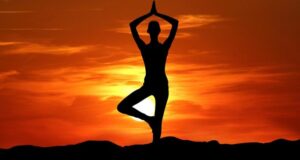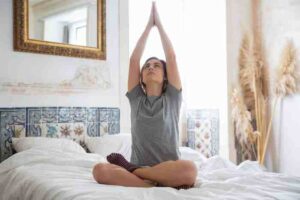
Welcome to the whimsical world of Relaxation Therapy, where stress meets its match and tranquility reigns supreme! Imagine a magical realm where deep breathing and visualization are your trusty sidekicks, helping you battle the villain known as anxiety. Here, we’ll embark on an adventure exploring various relaxation techniques, the treasure trove of benefits they offer, and how to weave them seamlessly into your daily life!
From progressive muscle relaxation that feels like a gentle hug for your body to the enchanting effects of meditation, each technique has its charm and effectiveness. Whether you’re a seasoned relaxation guru or a bewildered newbie, we’ll help you craft a personalized routine that fits like your favorite pair of sweatpants—comfy and just right!
Relaxation Techniques
Relaxation techniques are like a spa day for your mind and body, minus the cucumbers on your eyes and the inexplicable urge to wear a bathrobe in public. These methods can help reduce stress, increase feelings of peace, and improve overall well-being. From deep breathing to muscle relaxation and visualization, each technique has its unique flair that can cater to different individuals, much like how some people prefer lattes while others are die-hard espresso fans.Deep breathing is one of the most straightforward yet effective relaxation techniques available.
It involves inhaling deeply through the nose, allowing your diaphragm to expand fully, and then exhaling slowly through the mouth. This method can quickly lower heart rates and reduce anxiety levels. Some people may feel like they’re blowing up a balloon, while others might think they’re impersonating whales. Either way, it works! Progressive muscle relaxation is another delightful way to ease tension.
This technique involves tensing and then relaxing each muscle group in your body, starting from your toes and working your way up to your scalp. This is particularly effective for individuals who tend to carry stress in their shoulders or neck, often leading to the classic “I slept on a rock” look.
Personalized Relaxation Routine
Creating a personalized relaxation routine is akin to crafting a perfect playlist for a road trip; it should reflect your tastes and help you unwind. To design your routine, consider the following steps that can ensure your relaxation is as unique as your favorite pizza topping combination.Start by embracing deep breathing. Dedicate five minutes each morning to inhale positivity and exhale negativity, kind of like during a yoga class, minus the confusing poses.
Next, add progressive muscle relaxation for those days when your body feels like a tightly wound rubber band. Spend a few minutes tensing and relaxing your muscles, and you’ll feel like a limp spaghetti noodle afterward. Visualization can also play a pivotal role in your routine. Imagine a serene beach, with gentle waves lapping at your feet and seagulls providing the soundtrack, rather than a honking taxi cab.
This mental escape can transport you to a place of tranquility anytime you need it.Lastly, don’t forget to personalize your routine based on what feels right for you. Experiment with different techniques, mix and match them like a puzzle, and remember: if you find that deep breathing makes you feel like you’re about to pass out, it’s okay to switch gears.
Your relaxation journey is your own, and the only requirement is that it must involve minimal effort and maximum bliss!
“Relaxation is not a luxury; it is a necessity for a balanced life.”
Benefits of Relaxation Therapy
Relaxation therapy might sound like a fancy term for a nap, but it’s actually a treasure chest of mental and physical health benefits just waiting to be unlocked. Imagine a world where stress takes a backseat to serenity, and tension dissolves like sugar in hot tea. That’s the magic of relaxation therapy, which not only helps you chill out but also boosts your overall well-being in ways you might not even expect!The mental and physical health benefits associated with relaxation therapy are as plentiful as socks in a dryer after laundry day.
From reducing anxiety and lowering blood pressure to enhancing mood and promoting better sleep, the perks just keep piling up. According to a study published in the journal Health Psychology, individuals who engaged in regular relaxation techniques reported a staggering 40% decrease in perceived stress levels. This is no mere coincidence; relaxation therapy has emerged as a powerful tool in our wellness arsenal.
Mental Health Improvements
The role of relaxation therapy in managing conditions like anxiety and depression is as essential as chocolate in a dessert. Engaging in relaxation techniques can significantly decrease symptoms of anxiety and depression, making it a go-to option for many. Below are some standout benefits that illustrate how relaxation therapy can enhance mental health:
-
Reduces Anxiety: A research study found that mindfulness meditation—one relaxation technique—can lead to a 60% reduction in anxiety symptoms within just a few weeks.
-
Enhances Mood: Regular participants in guided relaxation reported feeling an average improvement in their mood by 30%. Happy vibes only!
-
Promotes Resilience: Those practicing relaxation therapy showed a 50% increase in their ability to cope with stressful situations, making them feel like superheroes in the face of adversity.
Physical Health Benefits
The benefits of relaxation therapy don’t just stop at the mind; they extend into the realm of physical health like a cozy blanket on a chilly night. A relaxed body is a happy body, and here’s why:
-
Lower Blood Pressure: Studies show that relaxation techniques can decrease systolic blood pressure by an average of 10-15 mmHg. That’s like getting a free pass on a roller coaster ride called life!
-
Improved Sleep Quality: Individuals practicing relaxation methods tend to fall asleep 20% faster and report feeling more refreshed upon waking. Say goodbye to counting sheep!
-
Boosts Immune Function: A study indicated that consistent relaxation practice can enhance the immune response, leading to a 40% decrease in the likelihood of catching a cold. Because who has time to be sick?
Whether you’re battling the daily grind or just want to elevate your overall wellness, relaxation therapy offers a buffet of benefits that can nourish both your mind and body. So go ahead, embrace that zen, and let the good vibes flow!
Integration with Other Wellness Practices

Relaxation therapy is like the Swiss Army knife of well-being—versatile, handy, and surprisingly effective in unexpected situations. In a world where stress is practically the national sport, integrating relaxation therapy with other wellness practices can create a harmonious symphony of serenity. Whether it’s yoga, pampering spa treatments, or even the articulate art of speech pathology, relaxation therapy plays a pivotal role that’s far too often overlooked.
Comparison with Other Practices
When comparing relaxation therapy with practices like yoga and spa treatments, it’s important to note that each offers unique benefits while also complementing the others. Yoga provides a physical and mental workout, enhancing flexibility and strength, while relaxation therapy focuses primarily on calming the mind and reducing stress. Spa treatments, with their indulgent massages and aromatic oils, can often integrate relaxation therapy principles by promoting tranquility and rejuvenation.
Speech pathology, though primarily concerned with communication, can also benefit from relaxation techniques that help reduce anxiety and improve vocal clarity, as a calm mind can produce a clearer voice.
Complementing Skin Care Routines
In the realm of skin care, relaxation therapy serves as the luxurious cherry on top of your beauty sundae. When your mind is at ease, your skin tends to glow with a natural radiance—because stress is about as good for your complexion as a tornado at a picnic. Incorporating relaxation therapy into your routine can lead to a more effective skin care regimen.
For instance, consider the following benefits:
-
Reduction in cortisol levels leads to decreased breakouts and inflammation.
- Enhanced absorption of serums and creams, as a relaxed state allows for better blood circulation.
-
Improved sleep quality contributes to a fresher complexion the next day.
Impact on Sleep Quality
Sleep is the ultimate rejuvenation tool, and relaxation therapy is its best friend. Engaging in relaxation techniques like deep-breathing exercises or guided imagery before bedtime can significantly improve sleep quality. By lowering stress levels and calming the mind, individuals can drift into dreamland more effortlessly. The results are more than just a less grumpy morning; there’s a scientific backing to this.
Studies indicate that improved sleep can enhance cognitive function and emotional stability throughout the day.
Role in Weight Loss and Women’s Health Issues
Relaxation therapy is not just about feeling good; it can also play a pivotal role in weight management and addressing women’s health issues, particularly those related to thyroid health. Stress is a sneaky saboteur of weight loss, often leading to emotional eating and hormonal imbalances. By incorporating relaxation strategies into daily routines, women may find it easier to maintain a healthy weight.
Besides aiding in weight management, relaxation therapy can also positively impact thyroid health. Stress can exacerbate thyroid conditions such as hypothyroidism, often causing fatigue and weight gain. Here’s how relaxation therapy aids in this arena:
- Reduces overall stress levels, which can lead to a more balanced hormonal environment.
- Encourages healthier lifestyle choices by fostering a mindset focused on self-care.
-
Leads to improvements in energy levels, making it easier to engage in physical activity.
Last Recap

In conclusion, Relaxation Therapy is not just a luxury; it’s a necessity for our busy minds and bodies. As we’ve journeyed through the benefits, integrations with wellness practices, and the sheer joy of unwinding, it’s evident that making time to relax is like finding a hidden treasure. So, arm yourself with these techniques, sprinkle in some humor, and let relaxation become your superpower in the everyday hustle!
FAQ Corner
What is relaxation therapy?
Relaxation therapy is a collection of techniques aimed at reducing stress and promoting a sense of calm and well-being.
How long should a relaxation session last?
Typically, a relaxation session can last anywhere from 10 to 30 minutes, but feel free to extend it as your mind and body desire!
Can relaxation therapy help with sleep issues?
Absolutely! Techniques like deep breathing and progressive muscle relaxation can pave the way to a peaceful night’s sleep.
Is relaxation therapy suitable for everyone?
Yes! Relaxation therapy can be tailored to suit individuals of all ages and backgrounds, making it a universal remedy.
Do I need special training to practice relaxation techniques?
No special training is required! Most techniques can be learned and practiced by anyone looking to find their inner calm.







